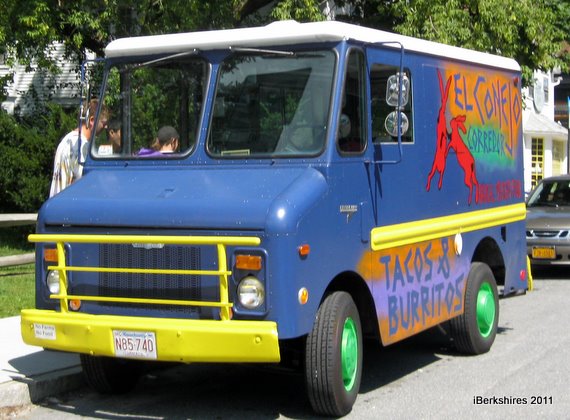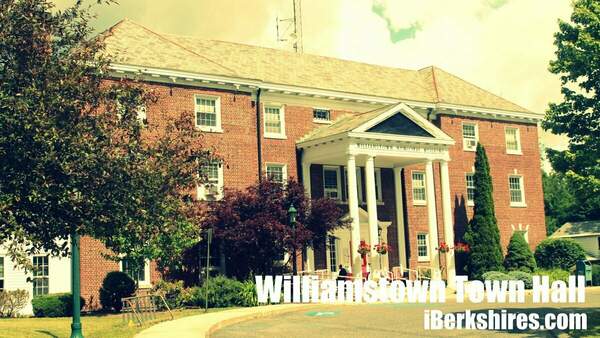Taco Truck Parking Debated By Williamstown Selectmen
 The owner of the taco truck who parks in various places around the downtown has appealed a parking ticket, saying he moved his vehicle before the end of his allotted time. |
She drove further down the road and parked in a different spot. She was not given a parking ticket.
When a certain giant blue van selling food did that, the owner was given a ticket.
Brian Cole, the owner of the taco truck he dubbed El Conejo Corredor, has been playing "parking roulette" with the law and, of course, the law won.
But Cole wasn't going to give up that easily. He appealed to Parking Clerk and Town Clerk Mary Kennedy. Kennedy, unsure how to rule, took it to the top and the Board of Selectmen spent nearly an hour Monday night debating the interpretation of Spring Street's parking time limits.
Selectmen David Rempell said he always saw it the way Allen has; in that a car cannot be parked in the same location for more than the allotted time. According to Rempell's interpretation, a driver can move to a different spot and still be obeying the law.
"I don't know how else it could be interpreted," Rempell said.
Selectmen Ronald Turbin, however, has the dissenting view. After trial and many tickets in Pittsfield, Turbin said he believes the time limits are for the entire street.
Police Chief Kyle Johnson said the tickets are written by officer discretion. If a car had moved to a completely different location, then the driver is typically excused from getting a ticket. But if driver had only moved one spot or left and returned to the same spot, police officers cannot tell if time limit has not been broken.
"If we can't say for sure that they've moved then we write the ticket," Johnson said. "What if you move a half a car length ahead and we can't tell."
The board debated if it should have a strict and clear enforcement policy but eventually decided to keep it exactly the same. That is, if a person has moved to a completely different part of the street, it is up to the officer.
"My interpretation is the same that Jane has put into practice," Chairman Thomas Sheldon said. "Someone can park twice on Spring Street but it has to be a discernable move."
While the board said it will keep it in "competent people's hands," Town Manager Peter Fohlin said his office has received many calls from vendors looking to bring food trucks to town. He asked the board to get ahead of the situation, which includes looking at developing a new food truck bylaw for the 2013 town meeting.
"It's on the agenda because of the inquiries about additional food trucks," Fohlin said. "We are getting calls from people who are interested in bringing their food trucks to Williamstown."
Tags: food vendor, parking, street vendor, tacos,















